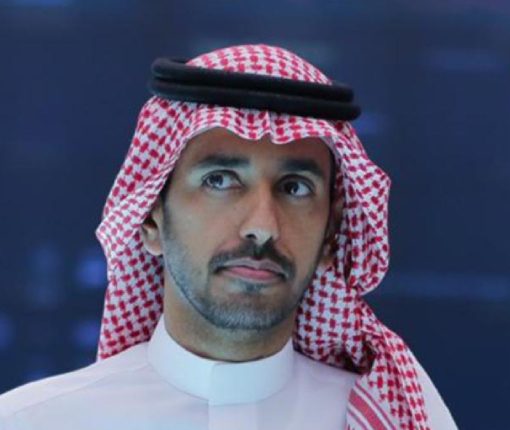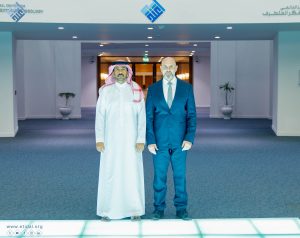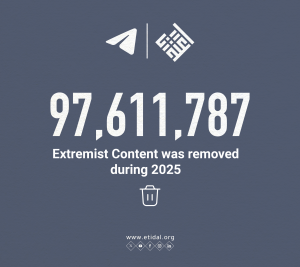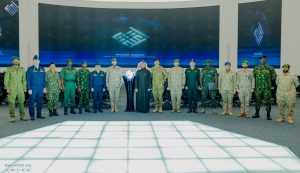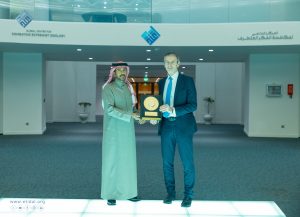Dr. Mansour Al-Shammari
Secretary-General of the Global Center for Combating Extremist Ideology (Etidal)
History shows us that the Middle East has long been the land of spiritual values. To this day, these values remain the moral system of large segments of the globe. It is in this region that the three monotheistic religions were born. It was on this land that the routes of global trade once passed, becoming the vital arteries through which the finest and rarest of its manufactured goods passed. These routes allowed civilizations to encounter one another and engage in cultural, linguistic, and intellectual cross-fertilization. That is how some of the greatest schools of thought came from the Middle East, which became the link of humanity’s heritage and the world’s memory, saving its knowledge from extinction.
Yet the tectonic shifts of the great struggle among global powers, and the decisive civilizational break that began at the end of the nineteenth century, upended all of that. New priorities emerged: the logic of practical interests, particularly economic interests. The civilizational foundations of the world were shaken, and it was redrawn without regard for the distinct cultural, anthropological, or linguistic characteristics of the regions caught in the crossfire of strategic competition.
What was the result? The logic of the world changed, along with its mechanisms for confronting challenges. A deep rupture with the chivalric and spiritual discourse of the “old world” gave way to a new discourse- more technical, pragmatic, and efficient. This shift was a severe shock to those who had failed to grasp these changes in time.
The effects of this shock have lingered ever since. At times, it has given rise to projects seeking to completely shed previous identities. At other times, it provoked fierce opposition from groups that called for a return to the pre-modern world. These groups believed that the wheel of history could be turned backward, and that reality could be swept away simply by impassioned slogans that resurrect the language of a bygone era.
In truth, between the desire to break with the past and the impulse to keep living in and identifying with it that followed this rupture, the Middle East has been mired in a chronic crisis. Since the 1920s, the region has been recycling the same conflicts. The mindsets that fuel them failed to ever seriously update their conception of things despite the numerous ruptures that we have seen since then.
Nonetheless, the region has continued to cling to its status quo, leading many to fall into a kind of obsession with perpetual conflict. Their worldview envisions the world as a permanent battlefield where problems can only be resolved through further violence and hatred. We should not assume that this mentality is confined to a single group. Rather, it is a deep-seated and latent logic that manifests itself in many languages and various religious communities- through an array of movements and organizations. Yet despite their differences, they follow this same underlying belligerent logic.
At various moments in the region’s history, conflict has been justified in militant terms and presented as the path to salvation. We were told that to arrive at the “great battle,” we had to first engage in domestic violent struggles. As a result, militia training camps became breeding grounds for radical ideologies that were reconstructed and passed down to youths.
And then? The same belligerent mentality was reproduced once again. This time, it took a new ideological guise. A hybrid framework emerged, producing a discourse that was neither at peace with its spiritual foundations nor fully aware of the consequences of its discourse. This propelled a new wave of propaganda promoting conflict through an ideological discourse that draws on historical narratives and projects them onto present realities to reach a broader audience, exploiting the Middle Eastern psyche’s deep attachment to its spiritual values and history.
This discourse came to constitute a form of cultural opportunism. It dealt a devastating blow to the psychological and intellectual balance of many generations who, swept by the rhetoric of open-ended conflict, failed to understand what was happening. These generations squandered historic opportunities to enter modern competition and enter a race that waits for no one as the competition accumulates power, progress, and prosperity.
Tragically, this belligerent mindset fixated on questions of the past and reactions whose original context no longer even exists. The conflictual project greatly benefited from the entrenchment of its slogans and narratives for generations, thanks to its powerful arsenal of rhetorical manipulation. As a result, these generations became increasingly susceptible to the belief that the only way out of the crisis was to fuel its most extreme violent expression within the framework of an all-encompassing battle that had been anticipated and awaited for decades. One opportunity after another to build a dignified life was lost as a result. Fueled by violent mobilization and incitement, the machinery of violence spun out of control, spilling the blood of its believers more than it did their supposed enemies. Instead of being trained to think critically about the crisis, generations remained caught in a state of chronic crisis that stripped them of political, social, and intellectual maturity.
Another rare, forward-thinking mentality emerged meanwhile. It understood the rules of competition, understood the nature of challenges, identified its sources of strength and potential weaknesses, and developed a political and conceptual approach grounded in a coherent conception of what was possible. This mindset focused, with balance and wisdom, on building nations that provide contemporary living standards and pursuing sensible aspirations as they shun the excesses of rhetoric and chivalric bombast. Even though the Middle East had historically led the way in eras suited to the language of horses and swords, this mentality, which we might call the reformist impulse, understood that the modern lexicon is not that of the 19th century or earlier periods, when people spoke of strength and managing crises and challenges in entirely different terms.
Though this reformist mindset never received the same fanfare that the belligerent mindset has, it has proven effective for offering pragmatic, reasonable solutions to many of the long-standing challenges that have plagued the Middle East for decades. Despite this success, however, the conflictual mentality remains more widespread because of propaganda and ideologies that serve narrow interests and entrench conflict-driven worldviews.
This will undoubtedly have consequences for future generations. If we do not do our part now, they too will miss their encounter with history, and they will lose their chance to engage constructively with the modern world: to demand new tools and skills. It is for this reason that the Middle East needs to re-center the reformist mindset.
Published in Asharq Al-Awsat newspaper on Saturday, July 26, 2025.

